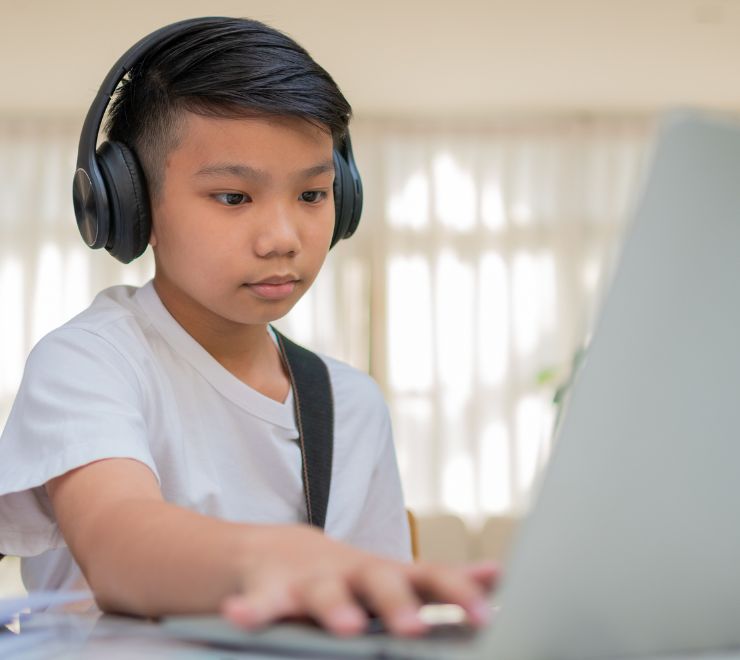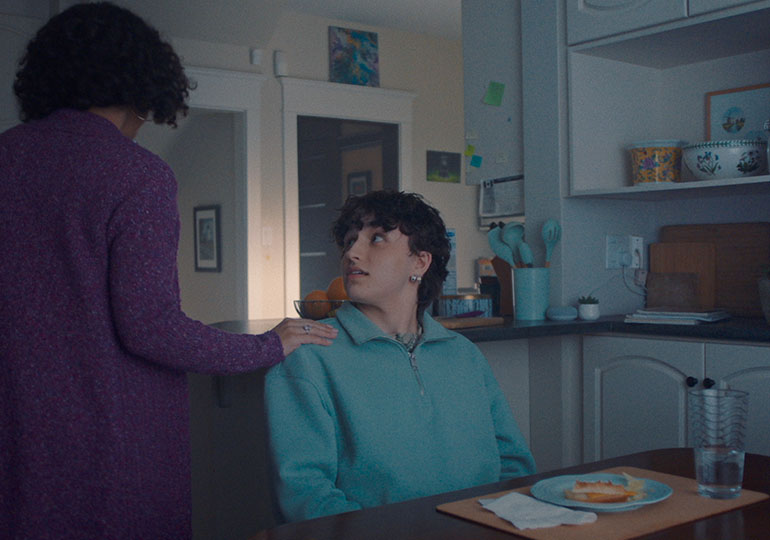Did you know that 17% of the young people that contact Kids Help Phone about abuse are between the ages of five and 13? If you’re experiencing abuse, you’re not alone. Because so many kids reach out to Kids Help Phone about abuse, we asked real kids to answer questions about how they might know if someone is unsafe at home and how to get support. Check out the video below to learn how you can spot some of the signs of abuse and find tools for coping.
This video explores the topic of abuse, which some viewers might find upsetting. We’re here for you. To find support, visit KidsHelpPhone.ca
I am 12 years old. I’m 11. I just turned 12. Yeah.
[What would you do if you won a million dollars?]
I would spend a bit on bath bombs and candles.
Buy a house. A mansion, maybe.
I’d buy myself a cat.
[What do you love about your friends?]
I love their personalities.
How sweet they are and how kind they are. And I just love my friends.
They tell funny jokes.
When they just want to spend time with me.
[What can make kids feel unsafe at home?]
Parents that yell at them all the time.
If they did something bad to them.
Neglect, for sure.
[How can you tell if someone may be unsafe at home?]
Maybe if they’re doing bad stuff like bullying other kids.
They might walk differently. They might talk differently.
If they’re not enjoying stuff that they would usually love.
If they come to school hurt.
[What can you do if someone you know is unsafe at home?]
Tell them to talk to somebody who can help them.
Contact child services or the police.
Tell another grown up.
[You can talk to Kids Help Phone any time, for any issue.]
It’s there to help make kids safe.
They have someone to actually talk to that could maybe help them.
Abuse is never OK and it’s never your fault. Your safety matters. While some forms of abuse can be obvious, it’s not always easy to identify, even when it’s happening in your own home. If you or someone you know is unsafe at home, it’s important to reach out to a safe adult. A safe adult in your life could be a relative, friend or teacher. We’re here for you. For more ways to get support, visit KidsHelpPhone.ca
What is abuse?
Abuse can show up in different ways. It can be physical (hitting, punching, etc.), emotional (being threatened or made to feel like a bad person) or sexual (being touched sexually or forced to do sexual things without consent). Abuse in the home is when a person uses violence to control or harm a family member. Experiencing neglect, like when a parent/caregiver doesn’t meet your basic needs, is another form of abuse.
Experiencing abuse can bring up many feelings, like stress, sadness, guilt, fear, anger, confusion, shame and other feelings. Abuse can be a challenging and complicated experience. Whether it’s happening to you or someone you know, you don’t have to deal with abuse alone. There are safe adults who can support you. It’s important to remember that abuse is never your fault.
What are ways to cope with abuse?
There are things you can do to stay safe and cope with abuse. You can try to:
- reach out to a professional Kids Help Phone counsellor or crisis responder who can support you any time, day or night
- create a safety plan and make a list of safe spaces to go
- reduce contact with the person/people causing abuse (when possible)
- connect with your community
- practise self-care or get involved with hobbies and things you enjoy
Learn more and get resources to cope with abuse
- Family abuse: What it is and how to identify it
- Safety tool: Abuse in the home
- Safety Planner
- 10 places to go if you don’t feel safe at home
- Dealing with family abuse: How to get help and stay safe
- Sexual abuse: How to get help and heal
- How to identify a safe adult
It’s not always easy to open up about experiences of abuse. When you’re ready to talk, Kids Help Phone is here to support you. To learn more about how other young people cope with abuse, visit the Peer-to-Peer community forums at Kids Help Phone.
Kids Help Phone would like to thank all the youth who appear in this video, as well as Professor Alina Kislenko from The ADHD & Spectrum Centre for their contributions to this video.








